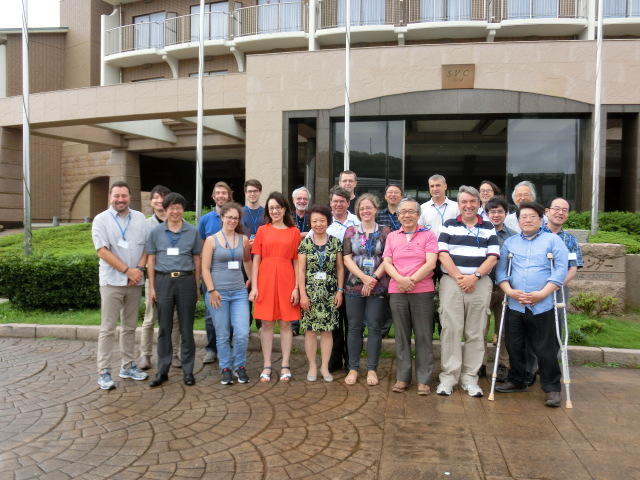NO.052 Engineering Adaptive Software Systems (EASSy)
September 7 - 10, 2015 (Check-in: September 6, 2015 )
Organizers
- Tetsuo Tamai
- Hosei University, Japan
- Hausi Muller
- University of Victoria, Canada
- Bashar Nuseibeh
- Open University, UK

Overview
Description of the meeting
It goes without saying that the modern society is founded on the information infrastructure, which is basically constructed with software, but its sustainability is now in question. Information systems will become obsolete and unusable if they cannot respond to requirements changes demanded by the users and their reliability and safety will be severely degraded if they cannot cope with their environment changes. The key issue here is how to engineer adaptive systems that conquer such sustainability threats.
The proposed workshop, the third edition of its series, focuses on this issue of engineering adaptive systems. The technical goals are:
Adaptation to environment changes Software systems are deployed or embedded in various environments and those environments frequently change. Software, in spite of its name, often shows stiffness and inflexibility to changes. How to provide adaptability to software is an important and challenging goal.
Quality requirements When software obtains the property of adaptability, quality requirements, including those for dependability and usability, may be affected. It is crucial to monitor the current quality requirements satisfaction status and maintain the qualities at the required level.
Specifically, topics to be discussed at the workshop include the following.
- How do we engineer adaptive software systems? What are the concepts, tools and techniques that can support requirements elicitation, architectural design and implementation of such systems?
- How do we reengineer legacy software systems in order to turn them into adaptive ones?
- Comparative review of adaptation mechanisms in Robotics, Multi-Agent Systems, Software Engineering, Socio-Technical Systems, Ubiquitous Computing, etc.
- Usability issues for adaptive software systems. How do we ensure effective human interaction with complex software systems that have adaptive components?
- Evolution of adaptive software systems. How do deployed adaptive systems evolve? How can we ensure convergence and stability for such a system, particularly when it is a system-of-systems composed of component systems, each with its own requirements and own adaptation mechanism?
- How do we reason with runtime models to support adaptation functions, i.e., monitoring, diagnosis and compensation? How can we support incremental runtime reasoning that predicts and/or prevents failures?
Workshop Format:
The four-day EASSy workshop will be held at the Shonan Village Center near Tokyo. 20 key participants will be invited to deliver position statements addressing a comprehensive approach to adaptive software system engineering. We envision sufficient time for discussion after each statement, e.g., 1 hour for each presentation slot, including 20-30 minutes for a statement, with 30-40 minutes of follow-up discussion. We plan to invite another 20 more junior participants who will contribute to and benefit from the discussions without having their own presentation slot.
We expect that in many cases these will be junior members of groups represented by a senior researcher in the workshop. As a deliverable for the workshop, we envision a follow-up special issue in an international journal, where workshop participants and the community- at-large will be invited to contribute original papers presenting comprehensive approaches to the engineering of adaptive software systems. The organizers hope that such a collection of papers will offer an authoritative account of the state-of-the-art on adaptive software systems and will guide future research in this fast-moving research field.
